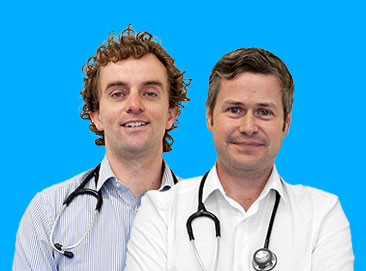Doctors have to pay income tax along with a variety of other taxes when applicable such as Capital Gains Tax, Inheritance Tax and National Insurance Contributions (which are in effect a form of income tax on salaries and self-employment profits such as those for GP Partners or certain locums.)
But what are the income tax rules for doctors? Are there any tax saving strategies for doctors?
Do doctors have to pay income tax?
Definitely, doctors do have to pay income tax especially on their salaries or any profits from Locuming or Partnership in the case of GP Partners. There are a few things that are exempt from income tax but these are few. Let’s look at the income tax rules for doctors first before considering what income is not chargeable to income tax.
Income tax is payable on a variety of sources including, among other things, if an individual receives employment income, profits from self-employment or partnership, or rental income from property. An individual may also pay income tax on bank interest and/or dividends though there are different income tax rules for these.
Tax rates and thresholds for paying different rates are set in relation to each tax year – which in the UK runs from 6 April to the following 5 April. Currently we are in the tax year ending 5 April 2025 or the “2024/25 tax year”.
Firstly, most doctors in the UK will receive a tax-free personal allowance which is currently worth £12,570. This means that for most of us, the first £12,570 of income is not liable to income tax.
After this, the next £37,700 of income is taxed at the Basic Rate of 20%. Then the next £87,440 of income is taxed at the higher rate of 40% and for any income above £125,140 the Additional Higher Rate of 45% applies.
What medical school didn’t teach us about money
“What medical school didn’t teach us about money” will give doctors a step by step plan to transforming your financial future. Enter your details to download your copy now

Sources of income where income tax is not payable:
Sadly, there aren’t many sources of income which are specifically exempt from income tax. The following are exempt:
- Income from Individual Savings Accounts
- Winnings from Premium Bonds
- Any income from betting, gaming or lotteries
- Certain social security benefits such as universal credit, housing benefit and child benefit (though be aware that there is a high income child benefit charge if your income is above £50,000 – see below)
- Scholarship awards
- Relocation expenses paid for by an employee up to £8,000
- Certain redundancy payments up to £30,000
- Dividends paid on the first £200,000 of Venture Capital Trust shares
So not many sources of income are exempt. Don’t forget that the first £12,570 is tax free for most individuals (see below) and currently the first £500 of dividend income is chargeable to income tax but at 0%. For some people savings income may also not be chargeable to income tax but the rules are a little complex and covered in another article.
Tax Saving Strategies for Doctors
When considering ways to minimise your income tax bill, the following 5 points are important:
- Make sure that you claim all allowable professional expenses against your employment income (or profits if trading as a self-employed locum or GP partner). You can claim your GMC, Royal College, BMA and indemnity insurance fees for not only the current tax year but the previous four as well. For more information, check out the this blog.
- Salaried doctors need to check their tax code – this is the code that HMRC send to your payroll department telling them what income tax to deduct. If this is wrong, you will be paying the wrong amount of tax and, while it is definitely possible to underpay tax because of this, most of the time you will be overpaying tax and may not realise it! For more information, check out this blog post.
- Understand the concept of “marginal rates” is very important. Your marginal rate is the rate at which you pay tax if you receive an extra pound of income and this may not be the same as the rates we mentioned above. The classic example comes when a taxpayer earns more than £100,000 of net adjusted income (basically income with a few tweaks) because at this rate you start to lose your tax-free personal allowance by £1 for every £2 you are over £100,000. So between £100,000 and £125,140 your marginal tax rate is actually 60% not 40% as you might expect(and for this we are ignoring National Insurance, student loans and pension contributions!). If you have children and are claiming help with childcare under the tax-free childcare scheme, if you go a pound over £100,000 you lose the whole lot (!) which can be a significant amount. Those claiming child benefit will start to have to repay it if their (or their partner’s) income goes above £60,000 and the whole amount above £80,000. So make sure you are aware of the consequences of going over certain income levels. Earning more money is great but less so if it then involves losing most of it to tax or losing out on some key benefits! For more information, check out this blog.
- Utilising your ISA allowance is a key part of most people’s tax saving strategies. Every taxpayer can pay £20,000 into ISAs including cash ISAs, stocks and shares ISAs and Lifetime ISAs (LISA). Any income receipts – interest or dividends – are tax free within the ISA shielding them income tax and also Capital Gains Tax if any shares are sold. LISAs are a tool to help people buy their first house or save for retirement and for every £1 you put in to a LISA, the government will put in 25p up to £1,000 if you put £4,000 into your LISA. There are a number of rules around these so make sure you are aware of them, not least that you must be younger than 40 to set one up. Read more here.
- For some taxpayers, moving assets between spouses or civil partners can help reduce income tax bills. If one spouse / civil partner is a higher rate taxpayer and the other a basic rate taxpayer it is worth considering if income-producing assets can be acquired by the spouse/civil partner paying the basic rate. Any assets transferred between spouses/civil partners are not liable to Income Tax, Capital Gains Tax or Inheritance Tax.
Conclusion
So do doctors have to pay income tax? Definitely yes and it adds up to a significant expense over your lifetime. Our tax advice for doctors would be to make sure you know the rules for income tax and think about the tax saving strategies for doctors we have listed above – you could save yourself a lot of tax by claiming all allowable expenses, keeping an eye on your marginal rate, and utilising any exemptions such as your annual ISA allowance.
Join 30,000 doctors and receive free, exclusive, financial CPD for doctors in your inbox.
Medics’ Money is run by doctors and finance experts, for doctors. Our free financial CPD gives you all the knowledge you need to take control of your finances.









